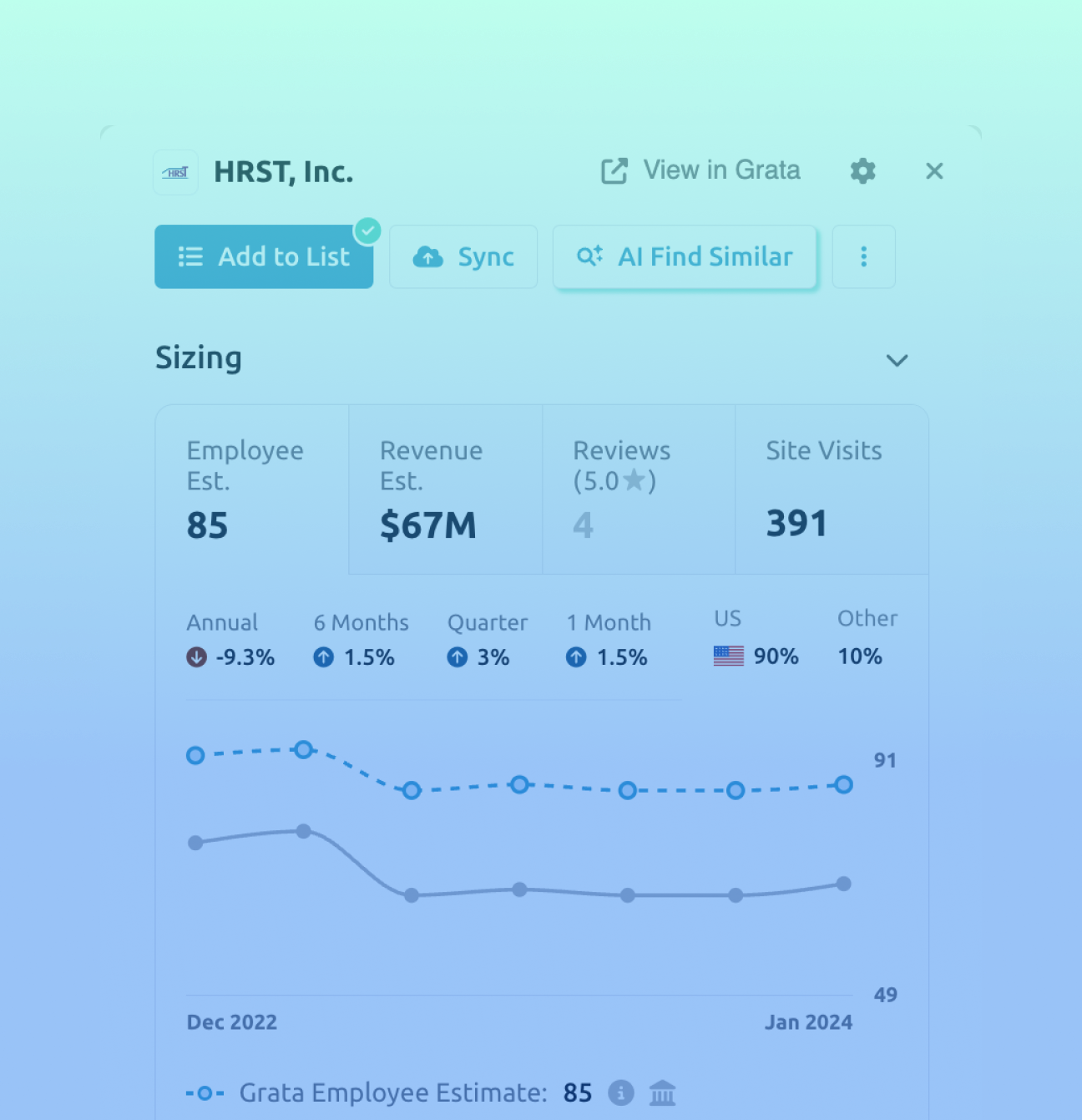Artificial intelligence (AI) is transforming how businesses approach due diligence. From analyzing vast datasets to identifying hidden risks, AI tools are making the process faster, more accurate, and more insightful.
But successfully integrating AI into traditionally manual due diligence workflows requires a clear understanding of its capabilities and the challenges associated with vendor partnerships.
In this guide, we explore the transformative benefits, potential risks, and best implementation practices of AI in due diligence.
Whether you’re selecting AI vendors, mitigating data exposure, or leveraging advanced tools to streamline evaluations, this article equips you with the knowledge to navigate this new frontier confidently.
The Challenges of Traditional Due Diligence
Due diligence has become more challenging than ever. Digital business data has become increasingly available, adding layers of complexity to the process.
Traditional due diligence places a significant strain on resources. Manually reviewing vast volumes of data is not only time-consuming, but also highly susceptible to errors, jeopardizing the accuracy and reliability of critical decisions.
The process often involves sifting through unstructured data, reconciling conflicting information, and coordinating across multiple teams under time pressure. These inefficiencies can lead to missed opportunities, overlooked risks, and delayed transactions.
AI tools can help firms ensure a thorough, efficient due diligence process without sacrificing operational focus – especially when using a purpose-built AI deal sourcing platform specifically designed for private market workflows. AI can sift through millions of data points in seconds to identify patterns, anomalies, and risks that might be overlooked by human analysts.
Additionally, machine learning (ML) algorithms continuously improve their accuracy over time. From analyzing financial records to scrutinizing online reputations and market trends, AI ensures no critical detail is missed. This capability accelerates decision-making and sets a higher standard for precision.
Defining AI Due Diligence
AI due diligence refers to integrating AI and ML technologies into the traditional due diligence process. This approach enhances traditional efforts such as:
- Compliance verification: AI automates the review of legal and regulatory requirements by scanning vast databases and identifying non-compliance risks in real time.
- Risk assessment: ML algorithms analyze historical trends, market conditions, and operational data to pinpoint potential red flags, such as financial inconsistencies, legal liabilities, or reputational concerns.
- Data consolidation and synthesis: By aggregating data from diverse sources — such as financial statements, news reports, and third-party audits — AI provides a cohesive and comprehensive overview, enabling faster and more informed decision-making. Tools like agentic search take this a step further by allowing dealmakers to ask complex, open-ended diligence questions and receive contextual answers grounded in market data and logic.
- Enhanced precision: AI tools continuously learn and refine their analysis to ensure greater accuracy and reliability with each application.
Streamlining these workflows frees up investors to focus on strategic insights rather than administrative tasks.
Diverse Advantages of AI-Driven Due Diligence
AI-driven due diligence addresses inefficiencies and unlocks new opportunities in the evaluation process. Its benefits span multiple dimensions:
- Efficiency: AI drastically reduces the time needed to analyze large datasets. For instance, instead of weeks spent manually reviewing financial documents, AI tools can process and summarize them in hours.
- Accuracy: AI minimizes human error thanks to ML algorithms that identify anomalies and patterns in data. This precision is critical in uncovering hidden risks, such as undetected liabilities or market vulnerabilities, that could otherwise be missed.
- Foresight: AI equips decision-makers with predictive analytics and offers insights into future trends and potential outcomes. For example, it can analyze industry data to forecast the trajectory of a target company’s market position.
These advantages not only streamline the due diligence process but also elevate its outcomes. They ensure better-informed, faster, and more confident decision-making.
Automation and Efficiency Gains
Traditional due diligence often involves sifting through massive datasets, such as financial statements, regulatory filings, and online reputations — an effort that can take weeks or months. AI changes the game by processing millions of data points in mere hours to identify insights and anomalies.
The efficiency gains are profound:
- Speed: Tasks that once required extensive manual effort, such as cross-referencing compliance records or analyzing market trends, are now completed almost instantly. For example, AI algorithms can scan and extract data from thousands of documents in a fraction of the time required by human teams.
- Cost savings: By automating repetitive processes, organizations save on labor costs while increasing output. These savings can be redirected toward high-impact areas like deal strategy or negotiation.
- Enhanced productivity: Automation allows human resources to focus on strategic analysis rather than administrative work. Professionals can dedicate more time to evaluating synergies, identifying growth opportunities, and tailoring strategies.
Automating due diligence workflows not only accelerates the process, but also ensures resources are used more effectively.
Unparalleled Accuracy and Reduced Risk
AI brings unmatched accuracy to the due diligence process by ensuring comprehensive data analysis while minimizing the risk of human error.
Traditional methods often struggle with incomplete datasets, oversight, or inconsistent performance due to the sheer volume of information involved. AI overcomes these limitations with its ability to analyze vast datasets with precision.
Some of the key benefits in this area include:
- Complete data coverage: AI systems are designed to comb through structured and unstructured data sources. For example, AI can analyze financial records, social media, and regulatory filings simultaneously, creating a holistic picture of a target company’s health.
- Minimizing human error: By automating repetitive tasks prone to mistakes, such as data entry or manual cross-referencing, AI reduces the likelihood of errors that could lead to costly misjudgments.
- Predictive analytics: AI enhances risk mitigation by forecasting future trends based on historical data and current market conditions. For instance, it can identify early indicators of financial distress or highlight emerging market opportunities, helping decision-makers act proactively.
These capabilities ensure that gaps are avoided so that firms can make well-informed decisions during critical transaction phases.
Continuous Learning and Improvement
AI's ability to continuously learn and improve is critical for its impact on due diligence. ML algorithms evolve by analyzing new data and interactions to deliver increasingly accurate and effective insights.
This offers several advantages:
- Enhanced accuracy: With each dataset analyzed, AI tools adapt and refine their understanding of patterns, anomalies, and correlations. For example, as AI evaluates financial records across multiple deals, it becomes better at spotting irregularities specific to certain industries or transaction types.
- Adapting to evolving markets: AI stays relevant by updating its analysis to reflect current market trends and regulatory changes. This ensures dealmakers receive insights tailored to the most up-to-date conditions.
- Scalability and longevity: AI's learning capabilities mean it becomes more valuable the longer it is used. Dealmakers benefit from a tool that not only meets their immediate needs but also grows alongside their evolving requirements, making it a long-term asset.
By embedding continuous learning into the due diligence process, AI delivers compounding value. It empowers professionals with tools that are efficient, accurate, and dynamic.
Embracing AI Due Diligence: The Future of Dealmaking
As firms navigate increasingly complex transactions, AI imbues the due diligence process with the precision, speed, and foresight necessary to succeed.
Strategic benefits that define the future of dealmaking include:
- Improved decision-making: AI consolidates vast datasets into actionable insights to enable investors make informed and confident choices. This data-driven approach minimizes guesswork and ensures critical factors are not overlooked.
- Risk reduction: By analyzing historical trends, market dynamics, and potential red flags with unparalleled accuracy, AI mitigates the risks inherent in dealmaking. Early identification of challenges allows teams to proactively adjust strategies.
- Enhanced efficiency: Automation of repetitive and labor-intensive tasks accelerates the due diligence process. It reduces costs and frees up resources for higher-value activities such as strategic planning and negotiation.
AI-driven due diligence helps firms keep pace with the complexity and speed of modern dealmaking. It also sets a higher standard for thoroughness and precision.
Vendor Due Diligence: Mitigating Risks in AI Partnerships
Selecting the right AI vendor is critical to successfully integrating the technology into your firm’s due diligence workflows. Without proper evaluation, businesses risk data exposure, regulatory breaches, or subpar technological integration.
Key vendor assessment areas include:
- Technological expertise: Evaluate the vendor’s AI capabilities, including algorithm performance, adaptability, and alignment with your organization’s objectives. Ensure their solutions are reliable, scalable, and supported by a robust development roadmap.
- Data handling practices: Examine how the vendor manages data security, ownership, and confidentiality. Look for transparent policies on data storage, processing, and retention to avoid misuse or loss of sensitive information.
- Compliance with regulations: Confirm the vendor adheres to legal standards like GDPR, CCPA, or industry-specific regulations. Non-compliance could lead to penalties or reputational damage.
- Security measures: Review the vendor's cybersecurity infrastructure, including encryption protocols, access controls, and threat detection systems. Ensure they have processes in place for regular security audits and incident management.
By addressing these critical factors, organizations can confidently partner with AI vendors. Comprehensive evaluations not only reduce risks but also ensure a seamless integration of AI solutions that drive success.
Understanding AI Capabilities and Types
The capabilities and use cases of AI vary widely. Knowing main distinctions helps firms choose solutions that align with their strategic objectives.
- Traditional AI focuses on rule-based systems and predefined algorithms. It’s commonly used for tasks like data classification, predictive analytics, and process automation.
- Example: AI-powered fraud detection tools that flag anomalies in financial transactions.
- Generative AI uses advanced models like neural networks to create new content, insights, or predictions. It’s applicable in scenarios like drafting reports, simulating market behaviors, or generating synthetic data for analysis.
- Example: AI tools that generate market forecasts or automate content creation for business presentations.
There are various reasons why these differences matter in due diligence:
- Capability alignment: Traditional AI excels at structured, repetitive tasks, while generative AI is better for creative, dynamic processes. Understanding these strengths ensures the selected solution fits your needs.
- Vendor expertise: A vendor specializing in generative AI might not offer the precision needed for tasks like regulatory compliance, which require rule-based systems. Evaluate vendors based on the type of AI they offer and how it aligns with your goals.
- Implementation complexity: Generative AI often requires more robust infrastructure and expertise for integration. Assess whether your organization and the vendor can support this complexity.
Distinguishing between traditional AI and generative AI ensures that firms select vendors whose capabilities align with both immediate needs and long-term goals.
Mitigating Data Exposure Risks
Data exposure remains a significant concern in AI partnerships as sensitive information is often shared, processed, and analyzed. Without robust security measures, organizations face risks such as unauthorized access, data breaches, and compliance violations. All of these can lead to financial and reputational damage.
There are several key risks of data exposure in AI partnerships:
- Unauthorized access: Improper access controls can expose sensitive data to unauthorized parties, including competitors or cybercriminals.
- Data breaches: Poorly secured systems are vulnerable to attacks and could lead to leaked or stolen information.
- Non-compliance: Mishandling data can result in violations of regulations like GDPR or CCPA and incur hefty fines and legal consequences.
Companies should implement strategies to mitigate data exposure risks. Some of these strategies are:
- Develop comprehensive security policies: Establish clear guidelines for data sharing, storage, and usage with AI vendors. Require vendors to adhere to your organization’s security standards, including encryption and access control protocols.
- Implement AI-specific security training programs: Train employees and stakeholders on recognizing and preventing data vulnerabilities. And include vendor-specific training to address unique risks associated with their platforms.
- Establish communication plans: Set up clear reporting structures for data-related incidents or breaches. Ensure open channels between your organization and the AI vendor to address security concerns in real time.
- Regularly audit and monitor: Conduct periodic audits of vendor systems to ensure compliance with security protocols. Use monitoring tools to track data flows and detect unusual activity.
Prioritizing these measures helps firms minimize data exposure risks and maintain trust with stakeholders. A proactive approach to security safeguards sensitive information and enables organizations to fully leverage the benefits of AI partnerships.
Critical Importance of AI Vendor Due Diligence
Conducting thorough due diligence on AI vendors is not optional — it is essential. AI partnerships hold immense potential to drive innovation, streamline processes, and unlock competitive advantages, but only when they’re built on a foundation of trust, security, and compliance.
Rigorous vendor evaluation ensures that:
- Innovation is maximized: By selecting vendors with the right technological capabilities, organizations can harness AI to enhance operations, gain actionable insights, and achieve strategic goals.
- Security is prioritized: Comprehensive assessments of data handling practices and robust security protocols protect sensitive information from breaches and unauthorized access.
- Compliance is maintained: Adherence to regulatory standards like GDPR and CCPA safeguards against legal and financial risks, ensuring that partnerships operate within ethical and lawful boundaries.
Organizations that embrace due diligence as a core part of their AI strategy position themselves as leaders in responsible technology adoption. And this diligence not only mitigates risks but also empowers businesses to benefit from AI’s potential.












